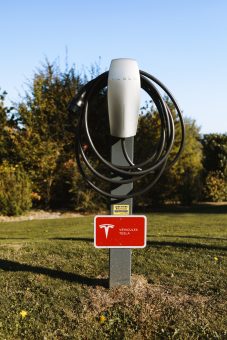
Research has been published recently on the obstacles that drivers face when switching to electric vehicles, a topic addressed by Transport & Environment UK.
Key issues identified in the UK, which can probably be found in many other countries, include an insufficient number of public chargers, the high initial price of electric vehicles, higher electricity bills, concerns about battery life and replacement and longer charging times compared to classic fuel-operated cars.
Details of the survey published by Transport & Environment UK reveal specific concerns among the drivers surveyed – 16 per cent consider the lack of charging points as part of public infrastructure to be a major problem, with a further 20 per cent expressing concerns about the same issue, thus making this the No. 1 concern. Expensive start-up costs are the main obstacle for 13 per cent of people and a concern for 17 per cent. High electricity bills are the main problem for 11 per cent of research participants, while 17 per cent consider them a concern. Battery life and the need to replace them is currently a concern of 9 per cent of surveyed drivers, with an additional 19 per cent concerned about the same problem, although they don’t see it as their primary concern. Finally, 9 per cent of respondents consider charging time a major problem, while 23 per cent express concern regarding this issue.
More:
- ELECTRIFICATION OF RAIL TRAFFIC – HOW MUCH OF IT IS IMPLEMENTED AND WHY IS IT IMPORTANT
- EU COUNCIL AND PARLIAMENT REACH AN AGREEMENT ON REDUCING CO2 EMISSIONS GENERATED BY HEAVY-DUTY VEHICLES
- ELECTRIC CARS FROM CHINA ARRIVE IN GERMANY

These are mostly the most common problems that drivers consider when buying a car, hence they proposed several measures that could alleviate the said problems. As many as 40 per cent believe that an 8-year warranty would make the purchase easier, while 39 per cent believe that providing guarantees that electric charging is 50 per cent cheaper than consumption of petrol per kilometre would significantly sway drivers toward electric vehicles, as would free installation of home chargers.
However, many drivers are unaware that some of these incentives are already available, although additional measures such as lower charging prices and equal regional development of EV infrastructure are also being called for.
According to the media sources, the number of electric vehicles on the road in Great Britain is growing significantly. This year, the number of fully electric cars exceeded 1,000,000, while an additional 620,000 were hybrid-powered. 2023 saw an 18 per cent year-on-year increase, with electric and hybrid vehicles accounting for nearly a quarter of all new car sales in January. The data also indicate that additional measures could further empower drivers to choose electric vehicles.
Energy portal





